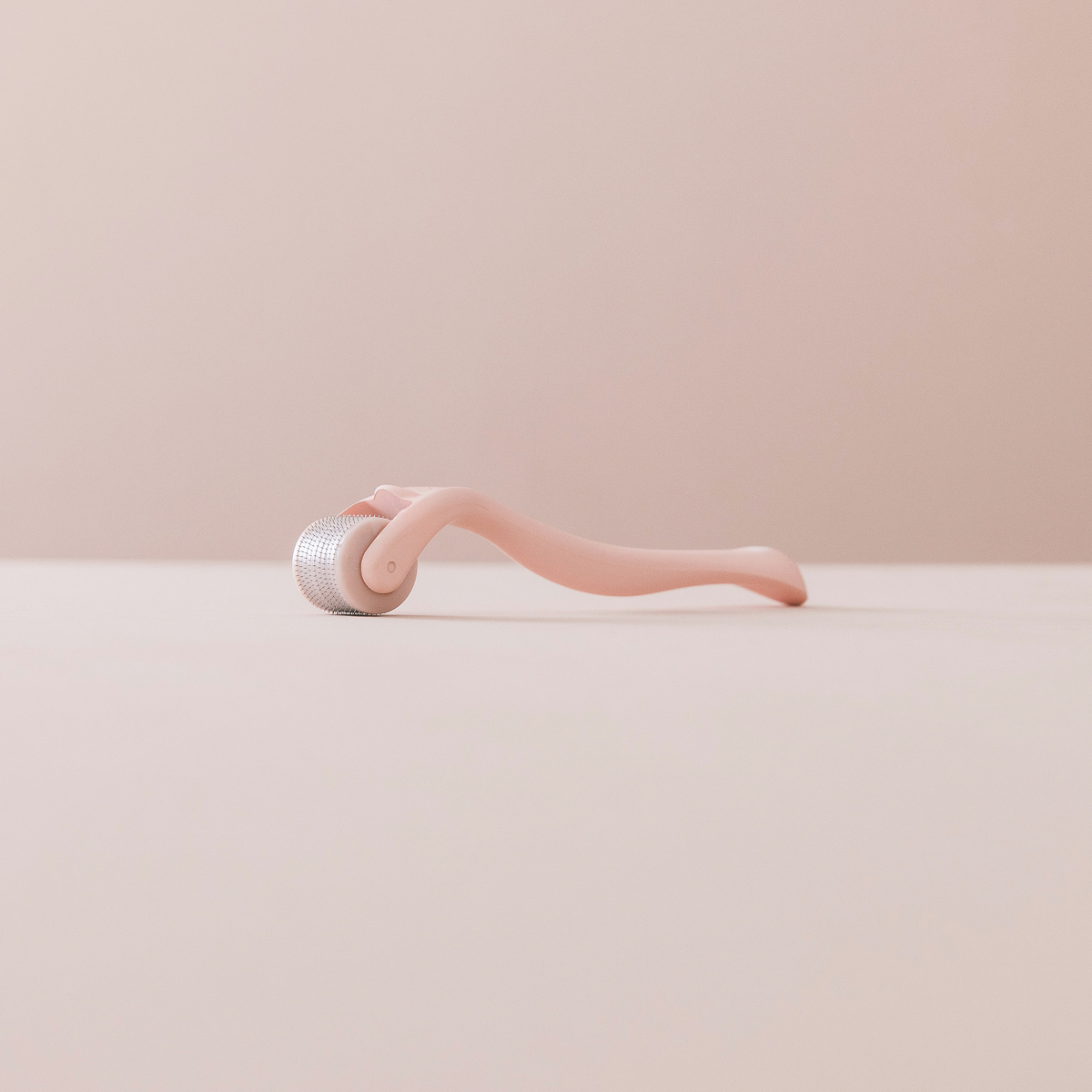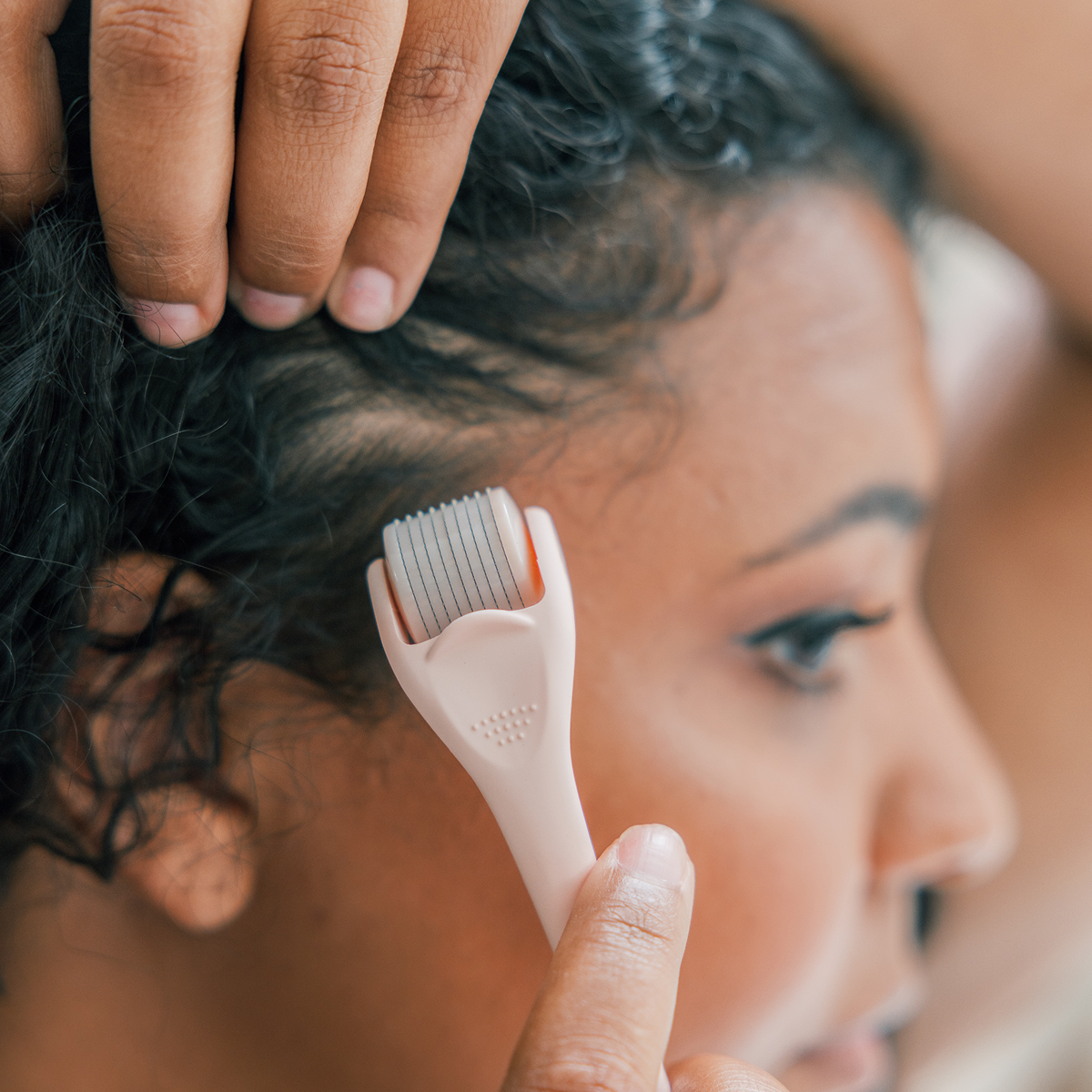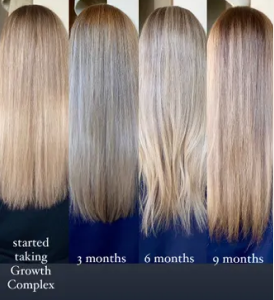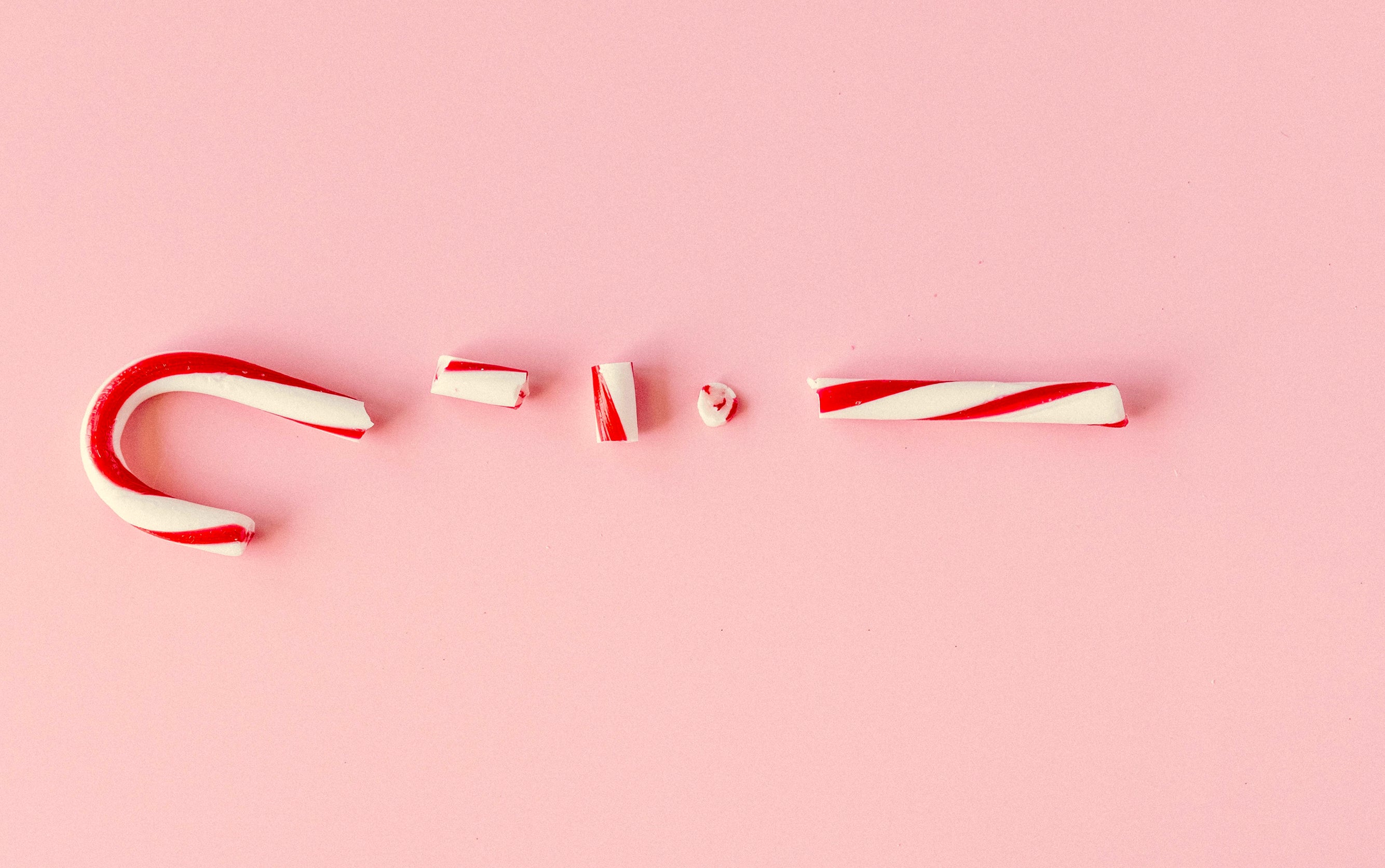Hi beauty! We are getting to that time of the year with lots of goodies and delicious dinners. It’s right about now you start hearing all sorts of things about nutrition, healthy eating, and weight gain. But I want to switch gears and talk about something you may not have heard… what you eat impacts your hair growth!
From my perspective, nutrition and hair health aren’t talked about near enough. But your hair needs the right nutrients to grow and look its best. This is especially true for damaged hair.
So let’s dive into essential nutrients for healthy hair, how nutrients influence your hair growth cycle, and how to help any nutritional deficiencies.
11 Top Nutrients for Hair Growth
1) Proteins
Your hair is primarily made up of a protein called keratin. It makes up your hair’s natural structure and directly affects its strength and overall health. Consuming protein helps in the production of amino acids, which form the building blocks of cells — including those in hair follicles. Basically, a diet high in protein is fueling the protein in your hair.
Foods high in protein include:
- Dairy products (cheese, Greek yogurt, milk)
- Eggs
- Fish (salmon, sardines, tuna)
- Lean meats (chicken, lean beef, turkey)
- Legumes (beans, chickpeas, lentils)
2) Vitamin
Vitamins do a lot for your body, and it doesn’t stop at hair growth! Vitamin A aids in the production of sebum, an oily substance that moisturizes your scalp and keeps hair healthy. It also helps with cell growth, including hair cells.
Foods high in vitamin A include:
- Carrots
- Kale
- Mangoes
- Spinach
- Sweet potatoes
3) B vitamins
Next up are B vitamins, and they really pack a punch! Examples of B vitamins are biotin, B5, and B12. Biotin is the big one you hear when we are talking about hair. That’s because biotin aids in the production of keratin, which as you remember, is mainly what your hair is made up of. The other B-vitamins support cell metabolism and division, crucial for healthy hair growth.
Foods high in B vitamins include:
- Eggs
- Leafy greens (kale, spinach)
- Nuts and seeds
- Organ meats (liver)
- Whole grains
4) Vitamin C
Usually when vitamin C is in the conversation, it’s about immune health. But vitamin C is also an antioxidant that aids in collagen production. Collagen strengthens hair and prevents it from becoming brittle and breaking.
Foods high in vitamin C include:
- Bell peppers
- Broccoli
- Citrus fruits (lemons, oranges)
- Guavas
- Strawberries
5) Vitamin D
Vitamin D is the sunshine vitamin. And fun fact, it helps stimulate hair follicles to grow. A vitamin D deficiency may lead to hair loss or thinning, so is often linked with the hair loss condition alopecia areata. Besides getting outside and soaking up the sun’s rays, certain foods may help increase your vitamin D intake.
Foods high in vitamin D include:
- Egg yolks
- Fatty fish (mackerel, salmon)
- Fortified foods (cereals, dairy)
- Mushrooms
6) Vitamin E
Just like vitamin C, vitamin E is an antioxidant and big for scalp health. It helps out by reducing oxidative stress on the scalp, as well as supporting hair growth. Oxidative stress can damage hair follicles and the hair shaft, all of which can lead to hair loss, thinning hair, premature graying, frizzy hair, or dry hair. Vitamin E is one of the best ways to counteract this!
Foods high in vitamin E include:
- Avocado
- Nuts (almonds, sunflower seeds)
- Spinach
- Sunflower oil
- Swiss chard
7) Iron
Iron doesn’t sound like something you should be consuming, but it’s actually an essential mineral. Iron carries oxygen to your hair follicles, promoting growth and overall health. Meaning, an iron deficiency can lead to hair loss.
Foods high in iron include:
- Legumes (chickpeas, lentils)
- Pumpkin seeds
- Quinoa
- Red meat (beef, lamb, pork, venison)
- Spinach
8) Zinc
You’ve probably heard of the mineral zinc. Zinc helps with tissue growth and repair for the body, including the repair of hair tissues. It also helps maintain the oil glands around hair follicles. These glands produce sebum, which I mentioned earlier. Sebum nourishes and moisturizes the scalp and hair follicles.
Foods high in zinc include:
- Beef
- Dairy products (cheese, milk)
- Legumes (beans, chickpeas, lentils)
- Seeds (hemp, pumpkin)
- Shellfish (crab, oysters)
9) Selenium
Selenium is a trace element and promotes hair growth, density, and volume. As an antioxidant, selenium helps shield your hair from oxidative stress and environmental damage. Plus, it helps clean out free radicals from oxidative stress that otherwise would cause damage or lead to premature graying.
Foods high in selenium include:
- Brazil nuts
- Eggs
- Fish (halibut, tuna)
- Spinach
- Sunflower seeds
10) Omega-3 fatty acids
Omega-3 fatty acids are healthy fats that support your scalp. They can help prevent dry, flaky scalp conditions that can hurt your hair growth. These fatty acids also help with inflammation, which definitely contributes to hair loss and hair damage.
Foods high in omega-3 fatty acids include:
- Fatty fish (mackerel, salmon, sardines)
- Seeds (chia seeds, flaxseeds, hemp seeds)
- Walnuts
11) Water
While not a food, water can’t be left out of the conversation for hair nutrition! Proper hydration is essential for your overall health and for a healthy scalp. It keeps the scalp moisturized and aids in delivering nutrients to the hair follicles. So drinking enough water goes hand-in-hand with eating the right diet for hair growth. Look to drink at least 8 cups of water (64 ounces) a day, but increase that if you’re active or exercise regularly.
How Nutrients Impact the Different Hair Growth Stages
Your hair growth cycle has three stages: anagen phase for active growth, catagen phase for transition, and telogen phase for resting and shedding. Nutrients are important for each stage of the growth cycle. Let’s look at which specific nutrients are needed for each one.
Anagen Phase (Active Growth)
- Biotin: During the anagen phase, biotin aids in the production of keratin and supports hair growth.
- Iron: Iron is necessary for optimal blood circulation, ensuring that the hair follicles receive enough oxygen and nutrients for healthy growth during this stage.
- Proteins: Proteins, especially keratin, are the building blocks of hair. During the anagen phase, where active growth takes place, getting enough protein supports the production of keratin. This leads to stronger and healthier hair strands.
- Vitamin C: This antioxidant is vital for collagen synthesis, which supports hair structure and strength during the growth phase.
Catagen Phase (Transition)
- B vitamins and protein: Though growth stops during this phase, adding B vitamins and protein in your diet helps preserve the quality of your hair structure for the next growth phase.
Telogen Phase (Resting and Shedding)
- Minerals: Minerals such as iron and zinc work together to maintain the strength and integrity of the hair follicles while they rest and prepare for the next growth phase. These minerals can also help lessen excessive shedding at this stage.
- Omega-3 fatty acids: These healthy fats help maintain scalp health and reduce inflammation. This supports a good environment for new hair growth and also lessens unnecessary shedding linked to inflammation or an irritated scalp.
- Vitamin D: This vitamin overall supports follicle health and helps prepare the ground for the next anagen phase. Vitamin D has also been found to regulate the hair growth cycle and trigger a faster cycle from the resting phase to the growth phase.
Growth Complex and Hair Nutrition
The HAIRLOVE story all began with damaged hair and me fearing that I would never get my hair back. During this lowest point, I turned to natural ingredients packed full of nutrients, and I learned for myself just how powerful the right nutrition is for your hair.
Our Growth Complex is formulated with nutrients for hair growth, including vital vitamins and minerals. One of the main ingredients is Cynatine HNS, the most bioavailable form of keratin. I’ve mentioned keratin more than a few times in this article simply because from my experience it’s the most important nutrient for hair growth.
Our formulation also helps with those other key areas of hair growth, including blood circulation, sebum production, neutralizing free radicals, strengthening hair follicles, and getting to the growth phase faster and longer.
There’s lots you can do to promote hair growth, and there’s so many supplements and serums out on the market. But nutrition is the not-so-secret ingredient to shiny, strong hair. Whether it be through diet, supplementation, or both, getting the right nutrients for your hair can completely transform your locks.
Wishing you all the best on your hair journey!
XOXO,
Kaley
Photo by Rayia Soderberg on Unsplash



























